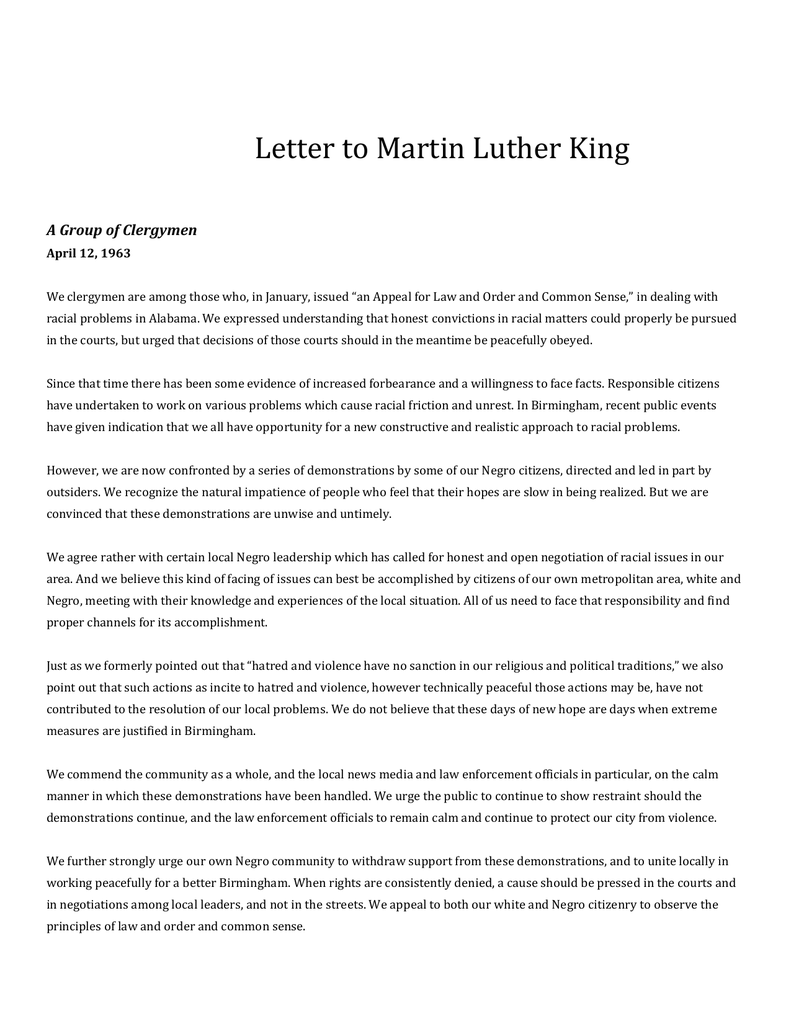

So, I would like to answer your statement in what I hope will be a patient and reasonable way. While confined here in the Birmingham city jail, I came across your recent statement calling our protest "unwise and untimely." I feel that you are men of genuine good will and your criticisms are sincere. He won a fellowship to Boston University for his Ph.D. He was one of six black pupils among 100 students and served as the president of his class. He graduated from Morehouse College and attended Crozer Theological Seminary in Chester, Pennsylvania. He sent it to eight white religious leaders of the South who said they were concerned about the protest. Welborn Academy of Science and TechnologyĮditor's Note: From the Birmingham jail, where he was imprisoned for a nonviolent protest against segregation, Dr.Washington Montessori Elementary School.Triangle Lake Montessori Elementary School.

Monticello-Brown Summit Elementary School.Erwin Montessori at Alamance Elementary.Christine Joyner Greene Education Center.

If King had failed, then the civil rights movement of the 1960s might have derailed. Lives were at stake and Birmingham was at the center of the storm. King turns the argument around and claims that he is “compelled to carry the gospel of freedom beyond my particular hometown” because “injustice anywhere is a threat to justice everywhere.” Like Jesus, King claims that he is an “extremist for love.” The letter is an exciting (not merely academic) combination of political philosophy and theology. King addresses many issues in his thoughtful letter, including the accusation that he is an outside agitator.

Martin Luther King declared, “We cannot in all good conscience obey such an injunction which is an unjust, undemocratic and unconstitutional misuse of the legal process.” After his arrest, eight fellow clergymen publicly criticized King’s actions as being “unwise and untimely.” King’s letter to them - and to the world - clarifies his belief in the necessity of the nonviolent yet “illegal” campaign. The city government requested a court injunction forbidding the groups from marching. In the spring of 1963, the Southern Christian Leadership Conference joined forces with the Alabama Christian Movement for Civil Rights to protest segregation in Birmingham.


 0 kommentar(er)
0 kommentar(er)
